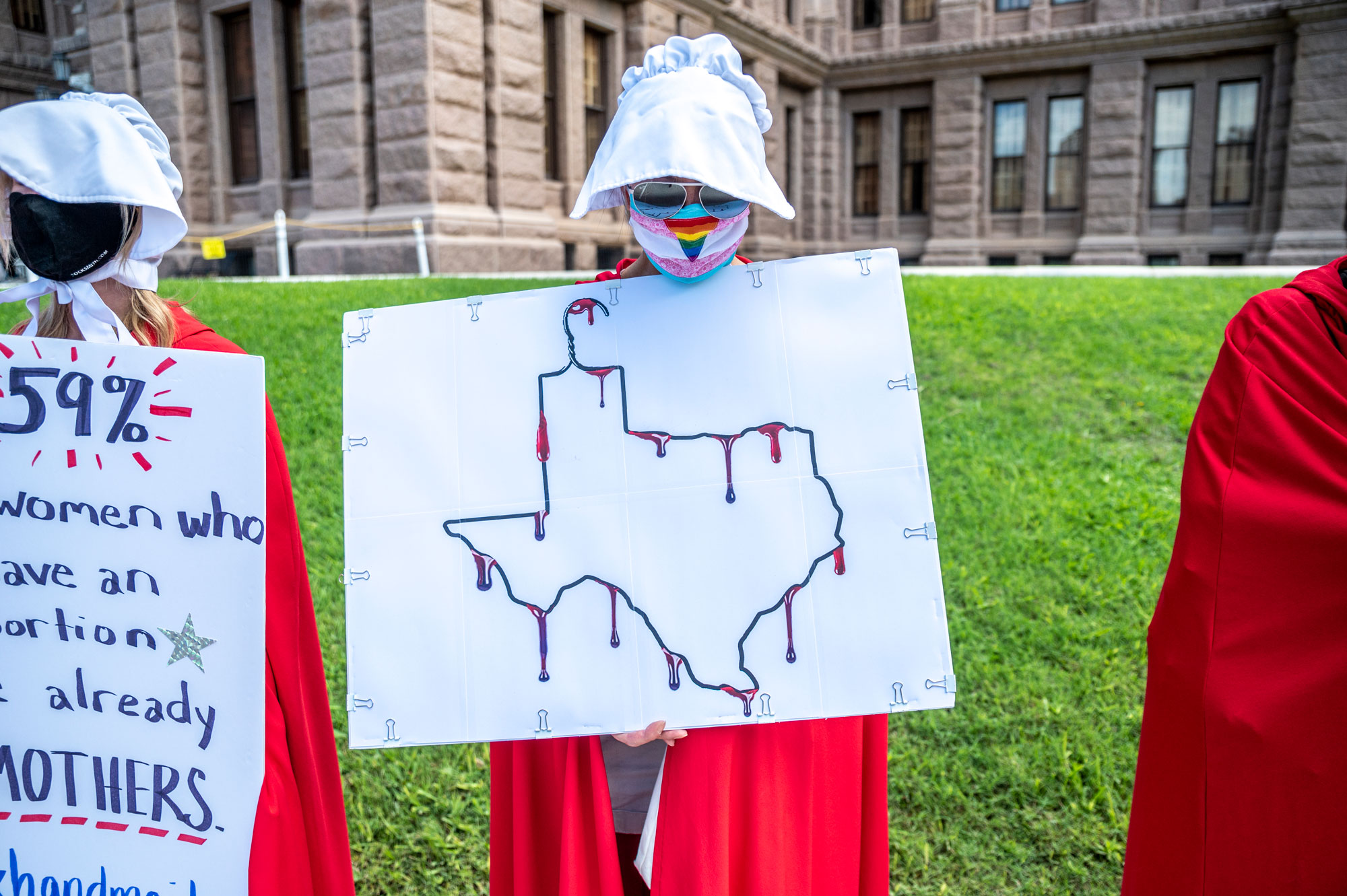A strict new law banning abortions beyond 6 weeks has just passed in Texas
This is scarily limiting for women's rights.


Celebrity news, beauty, fashion advice, and fascinating features, delivered straight to your inbox!
You are now subscribed
Your newsletter sign-up was successful
This is scarily limiting for women's rights.
The US state of Texas has just passed new legislation which bans people from having an abortion beyond six weeks into a pregnancy. Unsurprisingly, the strict new law has been heavily criticised by medical professionals as well as women's rights organisations, including Planned Parenthood and the American Civil Liberties Union (ACLU).
So-called the 'Heartbeat Act', it forbids the termination of pregnancy after the detection of a 'foetal heartbeat'. This is terminology that's used widely by anti-abortion campaigners, but medical authorities claim it is misleading. According to the American College of Obstetricians and Gynaecologists, it's not so much a heartbeat that is detected at this stage, but "a portion of the foetal tissue that will become the heart as the embryo develops".
The law follows a slightly unusual format, enabling any citizen to sue a doctor who "aids and abets" the performance of an abortion past the six-week point. It makes an exception in the case of a medical emergency (requiring written proof from a doctor), but it does not allow for the termination of pregnancies resulting from rape or incest after six weeks.

After being signed into law by Texas' Governor, Greg Abbott, in May, the Supreme Court was called upon by campaigners and abortion providers to block it. However, no action was taken by the senior court, and the legislation - which is one of the most restrictive in the whole country - has now officially been instated.
In response to the news, the ACLU labelled it "blatantly unconstitutional," and said: "Access to almost all abortion has just been cut off for millions of people."
And it's true; a study conducted in the US in 2017 determined that the average person only finds out that they are pregnant at 5.5 weeks. Based on this, the new law in Texas theoretically leaves just three days for people to make an informed choice about whether they want to proceed with the pregnancy - a decision that is rarely taken lightly and often comes with some emotional turmoil.
Celebrity news, beauty, fashion advice, and fascinating features, delivered straight to your inbox!
Roe v Wade, the landmark US Supreme Court case that legalised abortion in America in 1973, created the 'trimester' system which enabled women in the country an absolute right to an abortion in the first three months of pregnancy, and conditional access to abortion beyond that point. Texas' new legislation shatters this freedom, and it has triggered fearful conversation on social media about what it means for women's rights.

"I’m outraged and terrified that Texas was allowed to pass the 6 week abortion law! My hands are shaking as I write this. Women’s rights are are diminishing everyday! What’s next, not allowed to vote?" posted one person. "Texas's new abortion law is unconstitutional, based on pseudo-science and harms women and their families," added journalist Catherine Bennett.
"All women should abandon Texas. All men who love their daughters should flee," urged another commentator.
There is also widespread concern about what the format of this law means for future developments in legislation.
"The Texas abortion law is terrifying as a blueprint for laws," wrote one Twitter user. "Trying to give private citizens standing to sue on ideological grounds. I imagine this is going to be a template that will be followed for other conservative points if it works."
Describing it as a "very clever law,” constitutional law professor at South Texas College of Law Houston, Josh Blackman, told the Texas Tribune: "Every citizen is now a private attorney general. You can have random people who are against abortion start suing tomorrow."
Cat is a Senior Editor at Marie Claire, covering news and features across the brand's key purpose pillars, including women's issues, politics, career, mental health, female empowerment and equality, as well as books.
